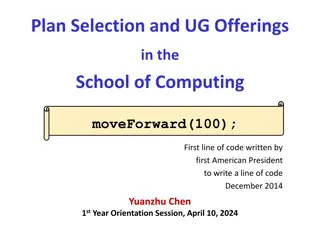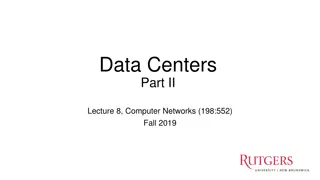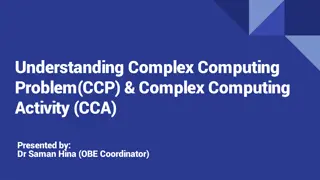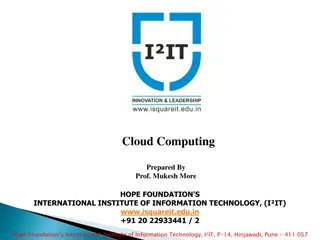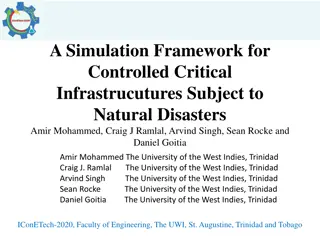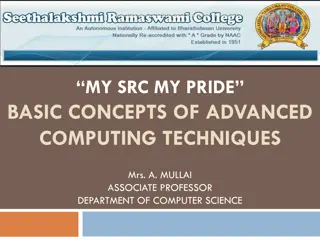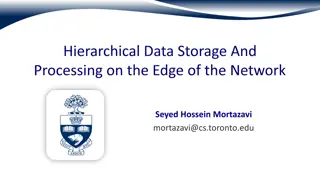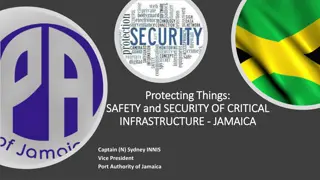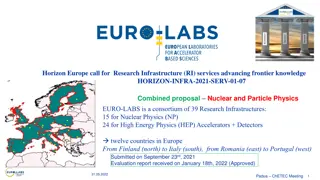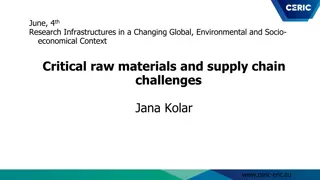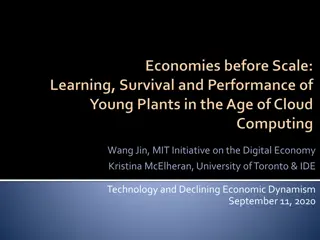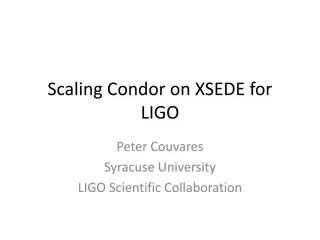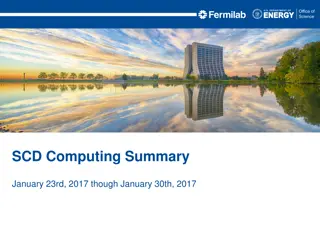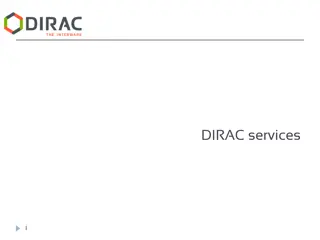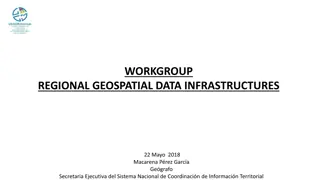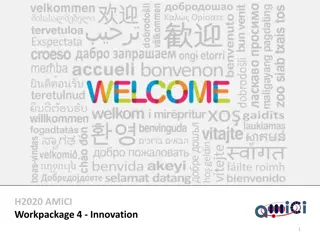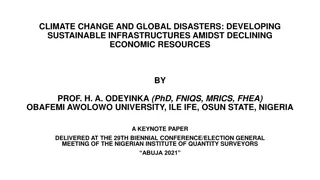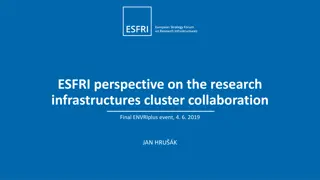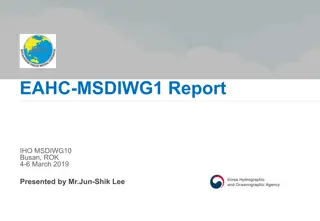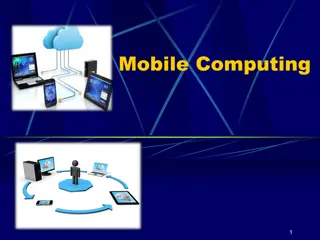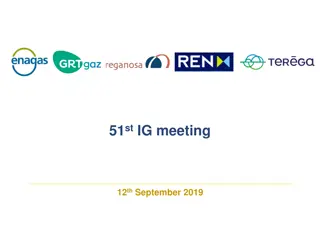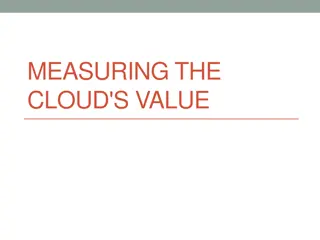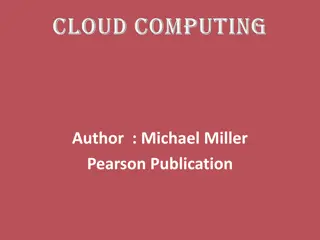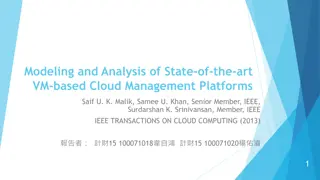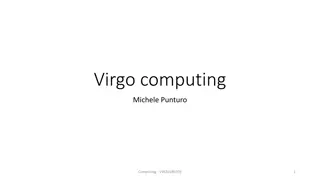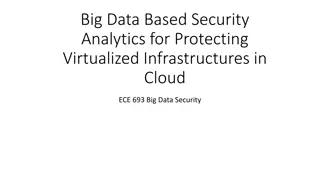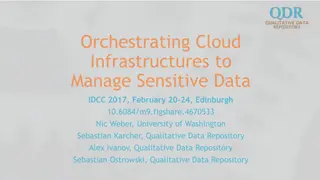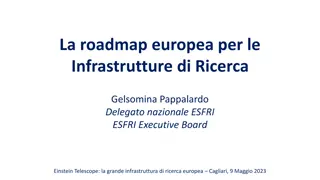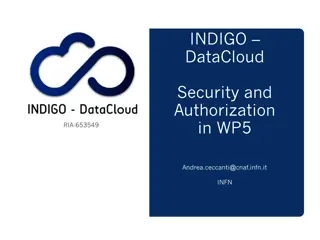Best and Unique MKCE Central Library Facilities and Infrastructures
Best and Unique MKCE Central Library Facilities and Infrastructures\n\/\/mkce.ac.in\/blog\/best-unique-mkce-central-library-facilities-and-infrastructures\/\t\/\/ \/
2 views • 2 slides
Best and Unique MKCE Central Library Facilities and Infrastructures
MKCE Central Library, established in the year 2000 and sprawling across 10,346.5 sq. ft., stands as a vital hub for students and faculty engaged in engineering, technology, and management disciplines. Further, the library has evolved into a robust repository, amassing a rich collection of books\n\/\
2 views • 2 slides
Computing Degree Plans and Offerings at School of Computing
Explore the diverse degree plans and offerings at the School of Computing, including Honours and General degrees, minors, and certificates in Data Analytics. Plan selection is crucial for advancing to second-year courses, with automatic acceptance and pending list options available. Discover the var
0 views • 20 slides
Data Migration Tool for Modern IT Infrastructures
In today's rapidly evolving IT landscape, the seamless transfer of data has become a cornerstone of business operations. Whether transitioning to cloud environments, upgrading systems, or consolidating databases, organizations rely on efficient data migration processes to ensure continuity and unloc
0 views • 2 slides
Understanding Data Centers and Cloud Computing Technologies
Explore the world of data centers and cloud computing through topics such as data center functionalities, cloud computing advantages, challenges in Data-Center Networks (DCNs), cost breakdowns, server utilization considerations, and more. Delve into the intricacies of managing large-scale computing
0 views • 20 slides
Understanding Parallel and Distributed Computing Systems
In parallel computing, processing elements collaborate to solve problems, while distributed systems appear as a single coherent system to users, made up of independent computers. Contemporary computing systems like mobile devices, IoT devices, and high-end gaming computers incorporate parallel and d
1 views • 11 slides
Understanding Complex Computing Problem (CCP) and Complex Computing Activity (CCA)
Dr. Saman Hina, along with Dr. Farrukh Arif and Dr. Maria Waqas, presents information on Complex Computing Problem (CCP) - a problem involving technical, computing, and other issues with no obvious solution, requiring deep knowledge and analytical thinking. CCP is evaluated through predefined rubric
4 views • 19 slides
Understanding Cloud Computing and Its Components
Cloud computing, offered by the Hope Foundation's International Institute of Information Technology, is Internet-based computing that involves remote servers sharing data-processing tasks and resources. Users can access software without local hardware requirements, empowering them with agility and e
0 views • 15 slides
Financial Market Infrastructures Policy in South Africa
Financial Market Infrastructures Policy in South Africa as of December 2018 outlines the definition of FMIs, policy objectives, criteria for designation of FMIs, types of FMIs such as payment systems, and proposals related to centralization. The policy emphasizes safety, efficiency, transparency, ac
2 views • 12 slides
Simulation Framework for Controlled Critical Infrastructures Subject to Natural Disasters
This research project focuses on developing a Simulation Framework, utilizing the I2Sim toolbox, to assess the impact of natural disasters on critical infrastructures. The framework includes creating a simulated disaster test environment, designing testing procedures to analyze disaster effects, dev
1 views • 19 slides
Exploring Basic Concepts of Advanced Computing Techniques
Delve into the world of advanced computing techniques with Mrs. A. Mullai as she discusses networks, computing, and pervasive (ubiquitous) computing. Discover how networks facilitate data exchange, the role of computing in designing hardware and software systems, and the trend of embedding computati
2 views • 40 slides
Exploring Emerging Technologies in Cloud Computing
Cloud computing revolutionizes accessibility to computing resources through shared pools. Next-generation applications, edge computing, and web applications on the cloud are shaping the future. CloudPath offers a platform for executing third-party applications across distributed data centers. Real-w
0 views • 16 slides
Safety and Security of Critical Infrastructures in Jamaica
The safety and security of critical infrastructures in Jamaica are paramount to safeguarding national economic security, public health, and overall well-being. Vulnerable to natural disasters and financial risks, Jamaica faces complex threats that require strategic protection measures. With a focus
0 views • 21 slides
Understanding Cloud Computing, Edge Computing, and Their Applications
Cloud computing entails centralized processing of data on powerful servers, offering scalable resources over the internet. Edge computing brings processing closer to data generation points, reducing latency and enhancing security. Both paradigms cater to different needs such as IoT, autonomous vehic
0 views • 18 slides
EURO-LABS Consortium: Advancing Nuclear and Particle Physics Research Infrastructures in Europe
EURO-LABS, a consortium of 39 Research Infrastructures across Europe, focuses on Nuclear Physics and High Energy Physics to advance frontier knowledge. The project was approved under the Horizon Europe call, evaluating various aspects of Research Infrastructure services. The consortium spans twelve
0 views • 19 slides
Challenges and Impacts on Research Infrastructures in a Changing Global Context
Research infrastructures face critical challenges like energy crisis, material shortages, and increased delivery times, impacting operations and project timelines. External factors and responses by policymakers and funders play a pivotal role in enhancing resilience. Recent events like COVID-19 and
0 views • 11 slides
Exploring Orto-Computing: Bridging the Gap Between Formal and Phenomenological Computing
Meaningful experiments suggest a transition from the formal, Turing-based approach to a structural-phenomenological one called Orto-Computing. This innovative concept integrates mind-matter interaction and non-formal functions within computational systems, offering potential solutions to complexity
0 views • 18 slides
Impact of Cloud Computing Technology on Young Firms' Performance
The technology shock of cloud computing has significantly influenced the survival and performance of young firms. Young firms face higher uncertainty, benefit from experimentation, and are resource-constrained, making cloud computing's elastic, fast, and generic nature particularly advantageous. Thi
0 views • 21 slides
Scaling Condor on XSEDE for LIGO - Collaborative Computing Project
The project aims to evaluate the utilization of XSEDE resources by LIGO for large-scale computing tasks, with a focus on distributed computing challenges and fostering a research computing community. Various aspects such as political, cultural, and technical narratives surrounding the collaboration
0 views • 28 slides
Summary of SCD Computing Metrics and Scientific Computing for January 23rd - January 30th, 2017
This summary covers a range of topics related to scientific computing metrics and SCD computing services from January 23rd to January 30th, 2017. It includes details on service areas, offerings, job operations, resource provisioning, database management, system monitoring, and more. The summary also
0 views • 5 slides
Overview of the Computing Community Consortium
The Computing Community Consortium (CCC) was established in 2006 under the Computing Research Association (CRA) to develop a vision for computing research and communicate it to stakeholders. It aims to align computing research with national priorities, encourage high-impact research, and groom new l
0 views • 48 slides
Advanced Cloud Computing Solutions with DIRAC Services
Explore advanced cloud computing solutions offered by DIRAC services at IN2P3, including maintenance, operation, VM scheduling, and contextualization. Learn about dynamic VM spawning, cloud endpoint abstraction, and virtual machine monitoring for efficient resource allocation. Stay updated on the la
0 views • 15 slides
Introduction to Mobile Computing Principles and Designing Mobile Applications
Mobile computing systems involve computing capabilities that can be utilized while on the move, leveraging wireless connectivity, small size, and mobile-specific functionalities. The history of mobile computing traces back to military origins and has evolved with technologies like GPS and wireless t
0 views • 98 slides
Regional Geospatial Data Infrastructures Coordination and Promotion Efforts
This initiative aims to coordinate and promote the development of Geospatial Data Infrastructures (SDIs) in the UN-GGIM Americas Member States. Activities include diagnosing the current status of SDIs, designing evaluation tools, sharing regional best practices, and conducting training sessions to e
0 views • 8 slides
Introduction to Boston University's Shared Computing Cluster
Boston University's Shared Computing Cluster (SCC) provides researchers with access to a high-performance computing environment for running code, collaborating on shared data, and utilizing specialized software packages. With over 800 nodes, 20,000 processors, and hundreds of GPUs, the SCC offers re
0 views • 63 slides
Advancing European Innovation in Accelerator and Magnet Technologies
The AMICI H2020 project aims to enhance collaboration between European companies to drive innovation in mature Accelerator and Magnet technologies. Through round table discussions, the project seeks to identify opportunities for industry engagement, establish collaborative frameworks, and optimize t
0 views • 17 slides
Developing Sustainable Infrastructures Amid Climate Change and Global Disasters
Prof. H.A. Odeyinka's keynote paper discusses the importance of developing sustainable infrastructures amidst declining economic resources in the face of climate change and global disasters. It highlights the concepts of climate change, sustainable development, atmospheric layers, ozone layer, carbo
0 views • 25 slides
Overview of Task Computing in Parallel and Distributed Systems
Task computing in parallel and distributed systems involves organizing applications into a collection of tasks that can be executed in a remote environment. Tasks are individual units of code that produce output files and may require input files for execution. Middleware operations coordinate task e
0 views • 17 slides
ESFRI Perspective on Research Infrastructures Collaboration
ESFRI, established in 2002, aims to support policy making, facilitate initiatives, and establish a European roadmap for Research Infrastructures (RIs). The Landscape Analysis highlights interconnections among RIs, while ESFRI's role as a facilitator involves gap analysis, incubator role, and promoti
0 views • 13 slides
Marine Spatial Data Infrastructures Report Overview
The report provides insights into the activities and discussions at the EAHC-MSDIWG1 meeting held in Busan, ROK. It outlines the key agenda items, country reports on national MSDI, membership details, importance of MSDI, and trends in marine spatial data. The report emphasizes the significance of ma
0 views • 11 slides
Exploring the World of Mobile Computing
Delve into the realm of mobile computing through this comprehensive presentation outline. Discover what mobile computing is, its applications, challenges, and the future of this technology. Compare mobile networks to wired networks, understand why going mobile is essential, and explore various types
0 views • 106 slides
Update on Infrastructures Developments and GRIP Coordination in Energy Sector
Follow-up discussions from the 51st IG meeting on 12th September 2019 regarding infrastructures developments including TYNDP, GRIP, and PCI selection process for the 4th PCI List. The TYNDP 2020, GRIP 2019, and feedback on GRIP's 2019 coordination were presented and discussed. The process for final
0 views • 21 slides
Understanding the Value of Cloud Computing
Cloud computing presents new opportunities with its shared multitenant utility model, offering access to pooled resources on a pay-as-you-go basis. This paradigm shifts the economics of IT infrastructures, benefiting applications through economies of scale, asset commoditization, and adherence to pr
0 views • 50 slides
Introduction to Cloud Computing: A Comprehensive Overview
Cloud computing, a transformative technology, enables easy access to applications and data from anywhere in the world, promoting collaboration and efficiency. This chapter delves into the fundamentals of cloud computing, distinguishing it from traditional desktop computing and network computing. Und
0 views • 32 slides
State-of-the-art Analysis of VM-based Cloud Management Platforms
This study delves into the modeling and analysis of cutting-edge VM-based cloud management platforms, exploring topics such as cloud computing, cloud structure, types of cloud computing, key features of cloud computing, and examples from the cloud computing industry. It discusses Infrastructure as a
0 views • 40 slides
Overview of Virgo Computing Activities
Virgo computing has been a hot topic recently, with various discussions and meetings focusing on computing issues, future developments in astroparticle computing, and funding for INFN experiments. The activities include presentations, committee meetings, talks, and challenges in computing faced by V
0 views • 34 slides
Big Data-Based Security Analytics for Protecting Virtualized Infrastructures in Cloud
This paper proposes a novel big data-based security analytics approach to detect advanced attacks in virtualized infrastructures in cloud computing. By utilizing network logs and user application logs collected from virtual machines, attack features are extracted through graph-based event correlatio
0 views • 54 slides
Managing Sensitive Data in Cloud Infrastructures: Best Practices and Considerations
Explore the orchestration of cloud infrastructures for handling sensitive data, including the importance of context, legal considerations, and utilizing self-assessment tools like CAIQ. Learn about QDR's current infrastructure at Syracuse University and the challenges of storing sensitive data in th
0 views • 10 slides
European Research Infrastructures Roadmap and Challenges
European Research Infrastructures are essential facilities for top-level research and innovation. The ESFRI plays a key role in establishing policies and funding projects to enhance the Research Infrastructures in Europe. The challenges include overcoming fragmentation, managing costs, improving eff
0 views • 11 slides
Challenges and Solutions in Data Security and Authorization for INDIGO-DataCloud RIA-653549
Large-scale virtualization resources in INDIGO-DataCloud RIA-653549 aim to enhance computing capacities, flexibility for data analysis, and cost-effectiveness by adopting standards-based computing platforms. Addressing the AAI problem of heterogeneous infrastructures, the project seeks to provide co
0 views • 15 slides


